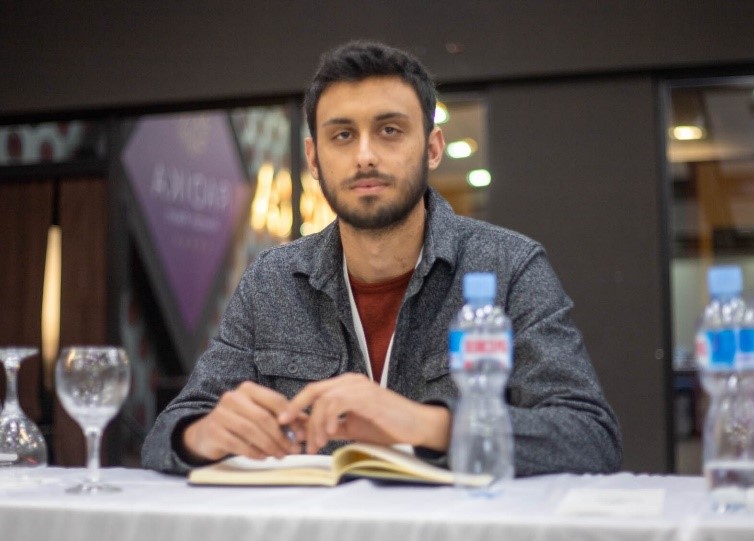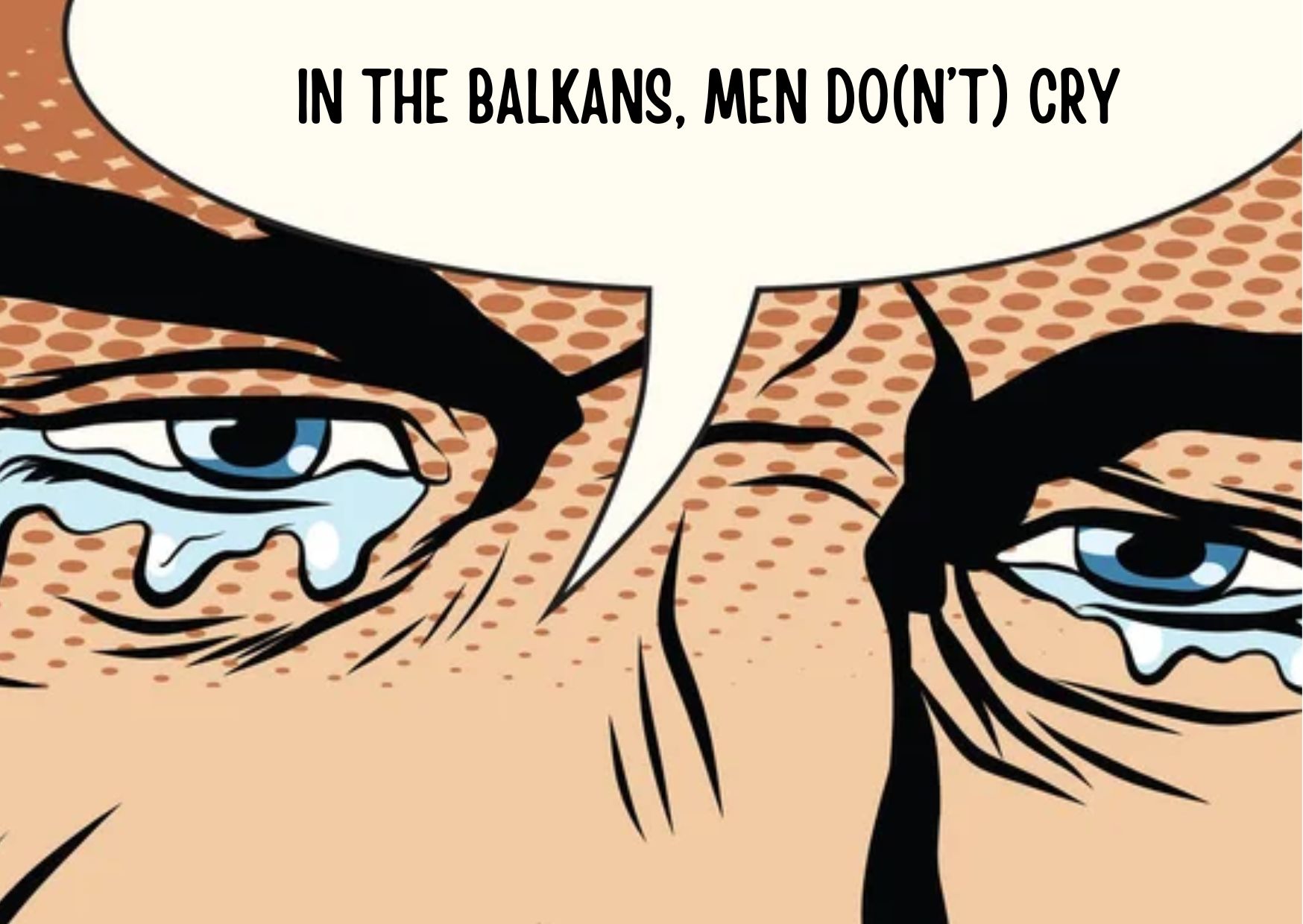This year marked Rechko Aliovski's 42 years in North Macedonia without citizenship, without the right to establish a bank account or even seek medical treatment. He is a phantom in his own country, just like his four children, who are unable to seek medical assistance or even an education due to their statelessness.
Statelessness is a scourge that affects generations. According to Ombudsman figures for 2021, the total number of unregistered persons in North Macedonia was 659; however, this is not an accurate and all-encompassing number of people experiencing this situation. According to the Ministry of Internal Affairs, 11,512 foreigners with regulated stay were registered in 2021 (temporary or permanent). Temporary stay presents a fast but short-term solution for stateless persons since this status can just be renewed.
They don’t have access to basic human rights
People who are stateless in North Macedonia have been referred to as "phantoms," "legally invisible," and "foreigners in their own country". Due to the current legislative framework and the insufficient functioning of the country's institutions, these persons lack access to the most basic human rights protected by international instruments.
"We don't have any rights. It's almost as though we don't exist in Macedonia. There is an issue. To begin with, we are unable to legally work and lack access to social services, including health insurance. I have a document guaranteeing me social care, but I can't create a bank account", Rechko Aliovski stated. When asked if he has tried to obtain a certificate of citizenship, he responds, "I have tried, but they told me that legally I am a foreigner, despite the fact that I have lived here my entire life. I was born here, and my children were born here."
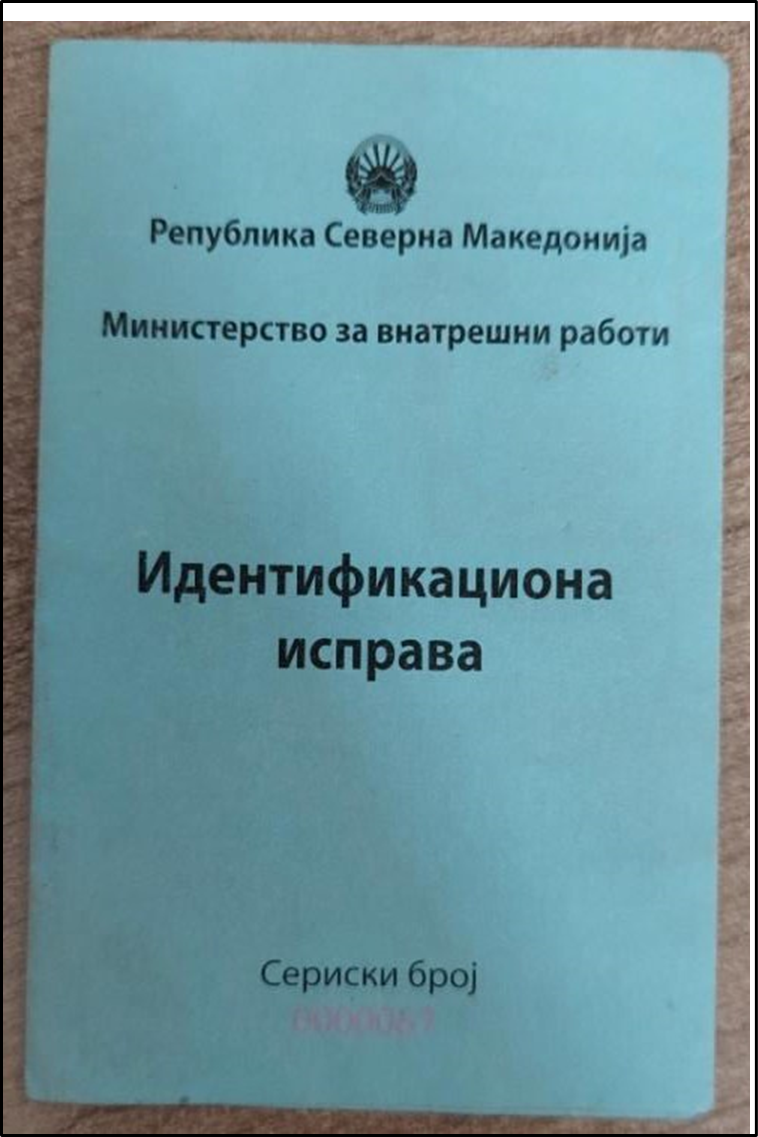
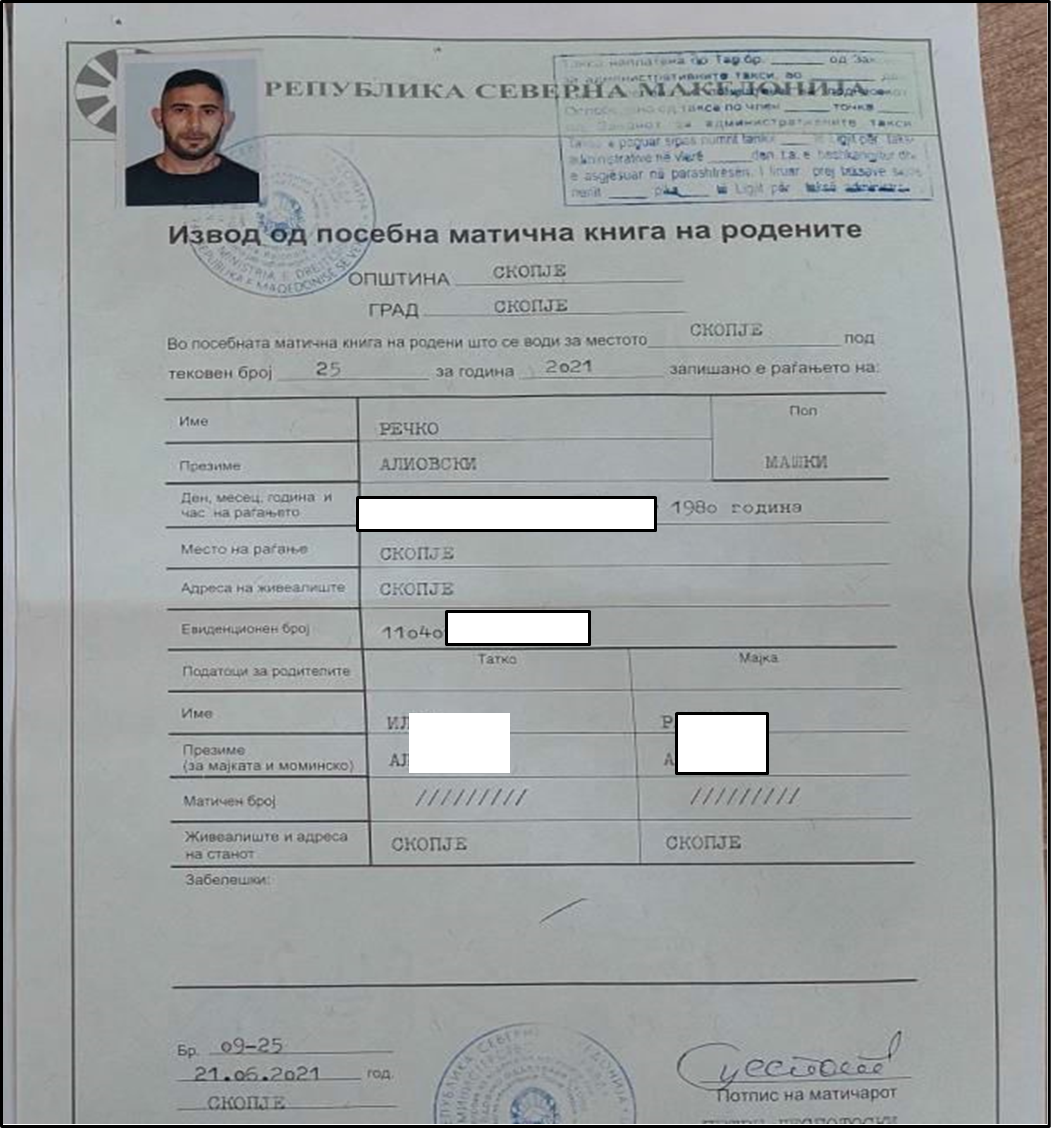
Rechko Aliovski’s personal documentation (Identification document – left, Certificate of Birth from special Birth Registry - right)
Nusret Amet, Aliovski's 28-year-old acquaintance, is experiencing similar difficulties. "We have nothing in terms of social and health insurance. Banks will not accept these documents as valid (forms of identification). When we go to the banks, they refuse to allow us to open an account. They want to see a Macedonian ID", Nusret explains. Because the institutions do not have the means to transfer these guaranteed social incomes (bank transfer required), they do not have access to social benefits.
These individuals, known as the stateless, are invisible in the eyes of the state, i.e. they are not considered citizens, and as such do not have access to the fundamental rights guaranteed by international instruments, the Constitution, and state laws, such as the right to health care, social protection, education, and employment.
According to Aleksandra Efremova from the Macedonian Young Lawyers Association, "possession of citizenship is a right to have access to other rights, and statelessness leads to exclusion from these rights, living on the sidelines and in poverty, discrimination, and so on."
According to Senada Sali of the European Centre for Roma Rights in Skopje, the lack of access to these rights stems from the fact that in this country, every right begins with "every citizen of the Republic of North Macedonia." Article 39 of the Constitution of the Republic of North Macedonia, for example, provides the right to health care to only citizens of the country.
Main reasons for statelessness in North Macedonia
There are numerous reasons why a person may be stateless or at risk of becoming stateless, including the absence of birth registrations, changes in state borders, migration, conflicting laws, discrimination, and a lack of political will.
"We have a problem with the legislative framework and the actions of the institutions; however, I believe that the emphasis should be on the lack of real will on the part of the responsible authorities to solve this problem, as well as a lack of capacity and knowledge for a systemic and holistic approach to solving it", stated lawyer Tamara Slaveska – Apostolovski.
Stateless people from former Yugoslavia are registered as foreigners in our country, despite the fact that some of them were born and raised here, which is why they are often referred to as "foreigners in their own country."
The main reasons for statelessness in North Macedonia are the disintegration of the former Yugoslavia, when many people from some of the countries that were part of the then Yugoslavia remained in Macedonia after September 8, 1991, but still failed to acquire either Macedonian or citizenship of the country of origin and the inability of certain persons, due to administrative obstacles, to be registered in the birth register and thus not to have an established citizen status.
The hope was that the recently published census would provide a clear picture of the representation of such people in our country, however, the precise number of stateless people in our country remains unknown.
The most straightforward approach - temporary residence
Stateless people in North Macedonia have the option of receiving either a temporary residence for one year, which is renewable every year or a permanent residence. The Law on Citizenship, on the other hand, states that stateless persons can acquire citizenship through marriage with a Macedonian citizen if they have six years of legal and uninterrupted residence in the country, meet all other conditions, and prove by submitting at least one proof that they had a domicile or residence in Macedonia prior to September 8, 1991.
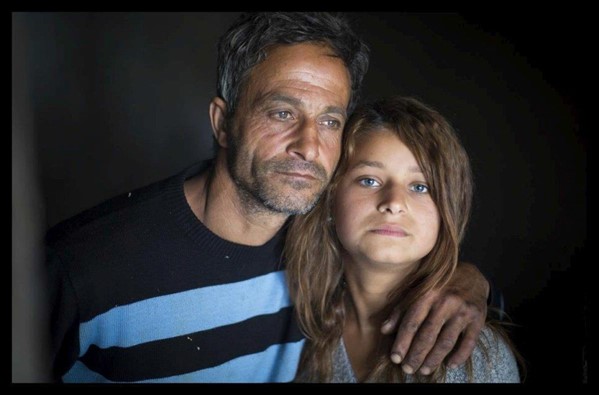
Mivtar (left) and Lirije (right), victims of statelessness as a result of the dissolution of SFRY. Source: © UNHCR/Roger Arnold
Namely, these persons conduct proceedings in accordance with Article 7a of the Law on Citizenship of the Republic of North Macedonia, according to which: “citizenship of the Republic of North Macedonia with naturalization hereunder to Article 7a may be acquired by a stateless person or a person with granted refugee status, but only if the person legally and permanently resides in the territory of the Republic of North Macedonia for a minimum of six years from the moment of recognizing statelessness or granting refugee status until the moment of filing a request to receive certificate of citizenship, and if s/he fulfills the requirements under article 7.”
According to information received by the Ministry of Internal Affairs, at the moment there are currently legal processes being carried out for 18 stateless persons to attain a certificate of citizenship in the Republic of North Macedonia in accordance with Article 7a of the Law on Citizenship.
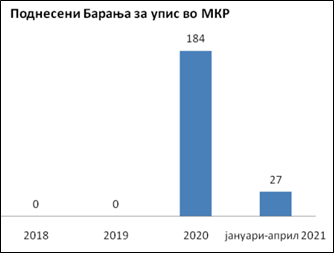
Submitted applications for registration in the birth register, 2018; January-April 2021. Source: Ombudsman RNM
Both globally and in the Republic of North Macedonia, efforts have been made to provide citizenship to children (found in the country’s territory) who are of unknown parentage, but sadly not to children whose parents are stateless. Concerning unregistered persons in the birth registry, the Law on Unregistered Persons in the Birth Registry was enacted in February 2020. Specifically, the purpose of this law is for "persons not registered in the birth register to be registered in a special birth register, in order to obtain a certificate from the special birth register and an identification document in order to exercise the right to education, health care, social protection, and employment with compulsory social insurance in accordance with the law, until additional entry in the birth register and obtaining the first birth certificate, in accordance with the law.” Unfortunately, this law does not address the systemic issue of these people, but it does provide for temporary registration, the issuance of a special registration number that should replace the personal identity number, and a special identification document.
However, while these documents constitute guarantees of rights, due to low administrative capacities, stateless people are still facing institutional hurdles which inhibit them from fulfilling their rights.
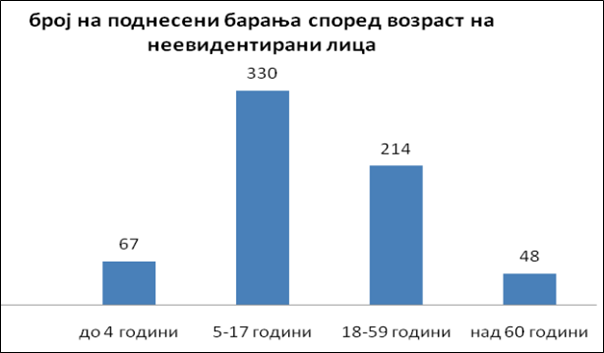
Source: Ombudsman RNM May 2021. Submitted applications for registration in the birth register by age. From left to right: up to 4 years; 5-17 years; 18-59 years; above 60 years old
Millions of stateless people in the world
According to the United Nations High Commissioner for Refugees' Statistical Report on Stateless Persons, millions of persons around the world are currently not recognized as nationals under their respective national legislation.
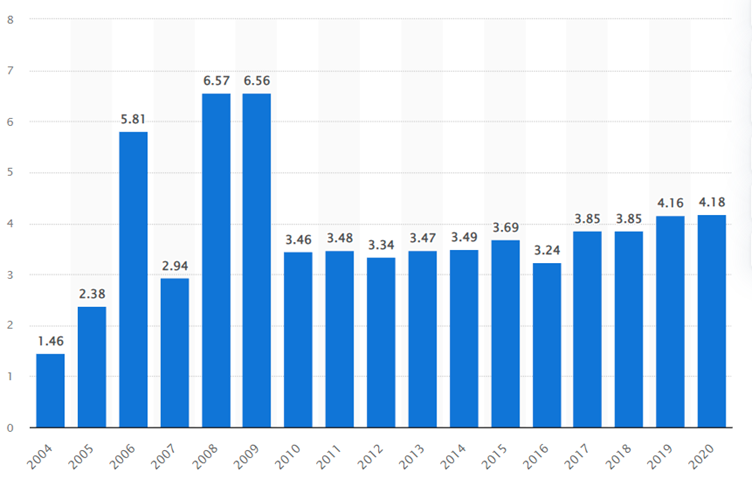
Worldwide number of stateless persons, year on year, in millions. Source: Statista
Cover photo credits: Photo by cottonbro: https://www.pexels.com/photo/people-standing-on-the-wooden-floor-6217806/
 (1)-1658410926.jpg)
